Surprised? So are we! But then, read on.
According to Specialist Nephrologist and Specialist Physician, Dr. Sanni Adebisi, the liver is a vital organ that helps filter toxins and waste from the body, and an unhealthy liver can lead to a range of serious health problems.
Nutritionists, however, warn that there are several fruits that are not good for the liver, especially if consumed in excess.
while all fruits contain beneficial nutrients and antioxidants, it is important to consume them in moderation and consider any underlying health conditions
Here are 10 fruits that can potentially harm the liver if consumed excessively:

Grapefruit: Experts at Hepatitis Foundation state that citrus fruits stimulate the liver and help it to turn toxic materials into substances that can be absorbed by water.
Grapefruit is especially good, as it contains naringin and naringenin, which are antioxidants that reduce inflammation to protect the liver from injury.
However, grapefruit also contains compounds that can interfere with the liver’s ability to metabolize certain medications.
According to Davidson Weizmann, this can cause a buildup of drugs in the bloodstream, leading to potentially dangerous side effects. So, don’t indulge too much in the fruit.
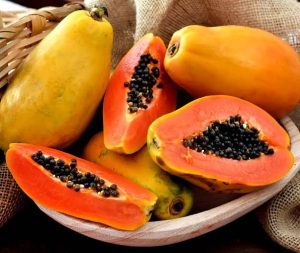 Papaya: Experts at Natures Best, a UK health outfit, papaya is a rich source of the mighty antioxidant, vitamin C, which helps to combat free radical damage. In addition to this, papaya also contains the compound, pyrroloquinoline quinone (PQQ) – another powerful antioxidant, which may play a role in liver health.
Papaya: Experts at Natures Best, a UK health outfit, papaya is a rich source of the mighty antioxidant, vitamin C, which helps to combat free radical damage. In addition to this, papaya also contains the compound, pyrroloquinoline quinone (PQQ) – another powerful antioxidant, which may play a role in liver health.
However, nutritionists warn that papaya also contains a high amount of natural sugars, which can be difficult for the liver to process, especially for those with liver disease or diabetes.
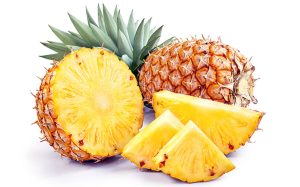 Pineapple: Nutritionists say generally, pineapple is rich in vitamins and minerals. It’s also the only major dietary source of bromelain, an enzyme that has been used for centuries to treat a range of ailments.
Pineapple: Nutritionists say generally, pineapple is rich in vitamins and minerals. It’s also the only major dietary source of bromelain, an enzyme that has been used for centuries to treat a range of ailments.
Modern research has studied bromelain’s effects and supports several of pineapple’s potential health benefits, food scientists say.
However, Microbiologist Jabeen Begum warns that people should only drink pineapple juice made from ripened pineapple, as nripe pineapple can be toxic to humans and can cause severe diarrhea and vomiting.
She adds that people with kidney disease should speak to their doctor before drinking pineapple juice to ensure its potassium content is safe for their diet.
She warns that pineapple contains bromelain, an enzyme that can cause blood thinning and interfere with blood clotting in some people. “This can be harmful to those with liver disease or who are taking blood thinning medications,” the physician warns.
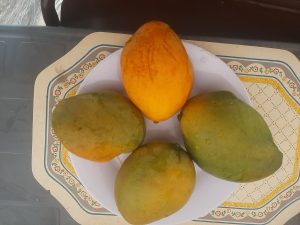
Mango: Ordinarily, raw mango is great to promote the health of the liver and treats liver ailments. “It stimulates the secretions of bile acids and increases the absorption of fat by cleansing the toxins out of the body,” experts at NetMed say.
However, hepatologists warn that mango is a high glycemic index fruit, meaning it can cause a rapid spike in blood sugar levels.
“This can put stress on the liver and lead to insulin resistance, which can lead to liver damage over time.” the liver specialists say.
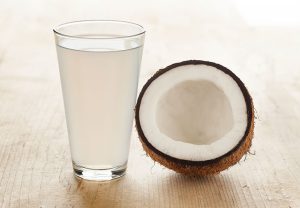 Coconut: According to Rodriguez Liver Foundation, MCTs in coconuts help the liver detoxify.
Coconut: According to Rodriguez Liver Foundation, MCTs in coconuts help the liver detoxify.
“Compared to supplements or over the counter “detox” products, coconuts are safer for liver cleansing because MCTs are not stored as fat and are used for immediate energy.
“Coconuts are also known to lessen toxins that back up in the bloodstream, which can lead to liver damage.” the researchers say.
However, they warn that coconut is high in saturated fat, which can increase cholesterol levels and put stress on the liver.
“Consuming too much coconut can also lead to fatty liver disease,” they warn.
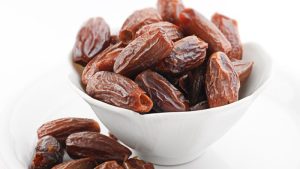 Dates: Experts at Medical News Today say dates are healthy fruits that contain many vitamins, fibers, and minerals, that support the liver and protect it from harmful toxins. Thus they maintain the vitality of the body.
Dates: Experts at Medical News Today say dates are healthy fruits that contain many vitamins, fibers, and minerals, that support the liver and protect it from harmful toxins. Thus they maintain the vitality of the body.
However, dates are also high in sugar and can cause a rapid spike in blood sugar levels. “This can put stress on the liver and lead to insulin resistance, which can lead to liver damage over time,” physicians warn.
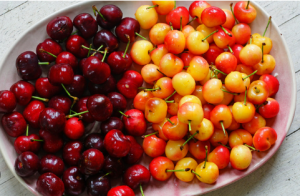 Cherries: Cherries contain high levels of fructose, which can be difficult for the liver to process, especially for those with liver disease or diabetes.
Cherries: Cherries contain high levels of fructose, which can be difficult for the liver to process, especially for those with liver disease or diabetes.
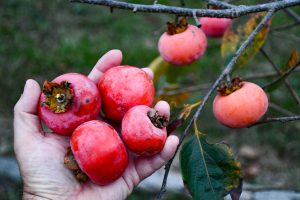 Persimmons: Persimmons contain tannins, which can be harmful to the liver when consumed in excess. This can lead to liver damage and cirrhosis.
Persimmons: Persimmons contain tannins, which can be harmful to the liver when consumed in excess. This can lead to liver damage and cirrhosis.
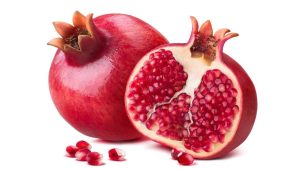 Pomegranates: Pomegranates contain compounds that can interfere with the liver’s ability to metabolize certain medications. This can cause a buildup of drugs in the bloodstream, leading to potentially dangerous side effects.
Pomegranates: Pomegranates contain compounds that can interfere with the liver’s ability to metabolize certain medications. This can cause a buildup of drugs in the bloodstream, leading to potentially dangerous side effects.
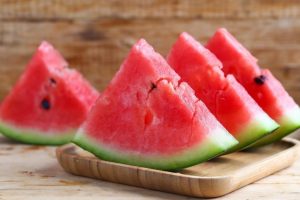 Watermelon: Watermelon is high in fructose, which can be difficult for the liver to process, especially for those with liver disease or diabetes.
Watermelon: Watermelon is high in fructose, which can be difficult for the liver to process, especially for those with liver disease or diabetes.
In conclusion, while all fruits contain beneficial nutrients and antioxidants, it is important to consume them in moderation and consider any underlying health conditions.
Consult with a healthcare professional or registered dietitian before making any significant changes to your diet.


